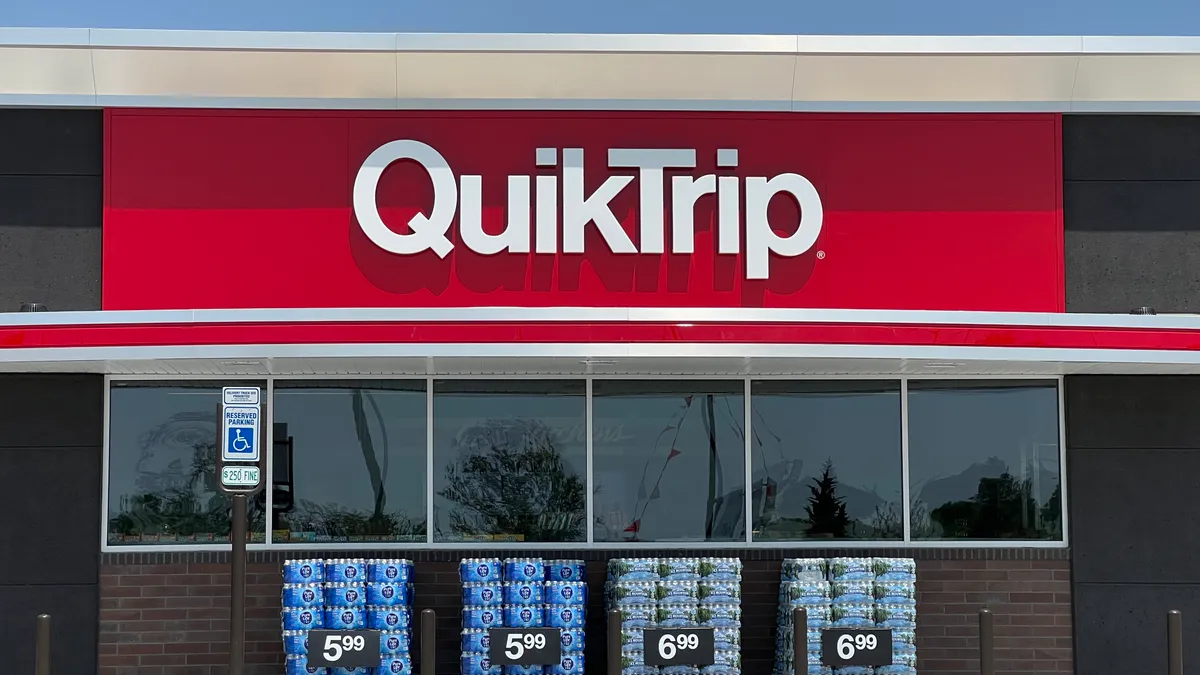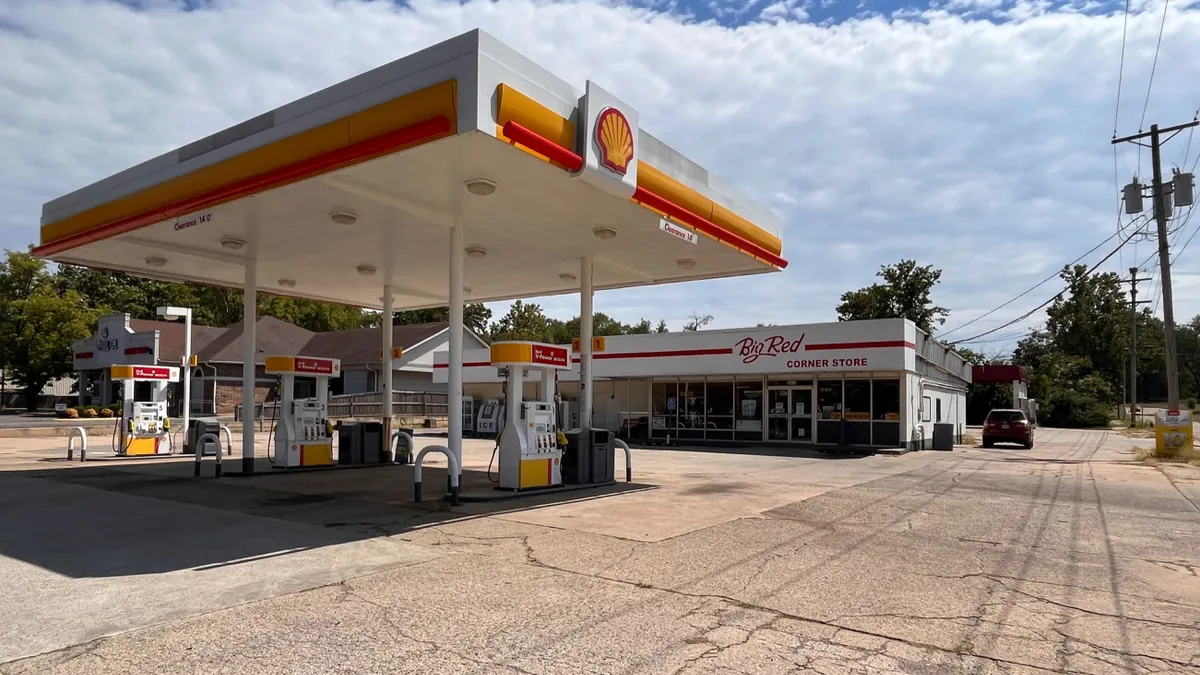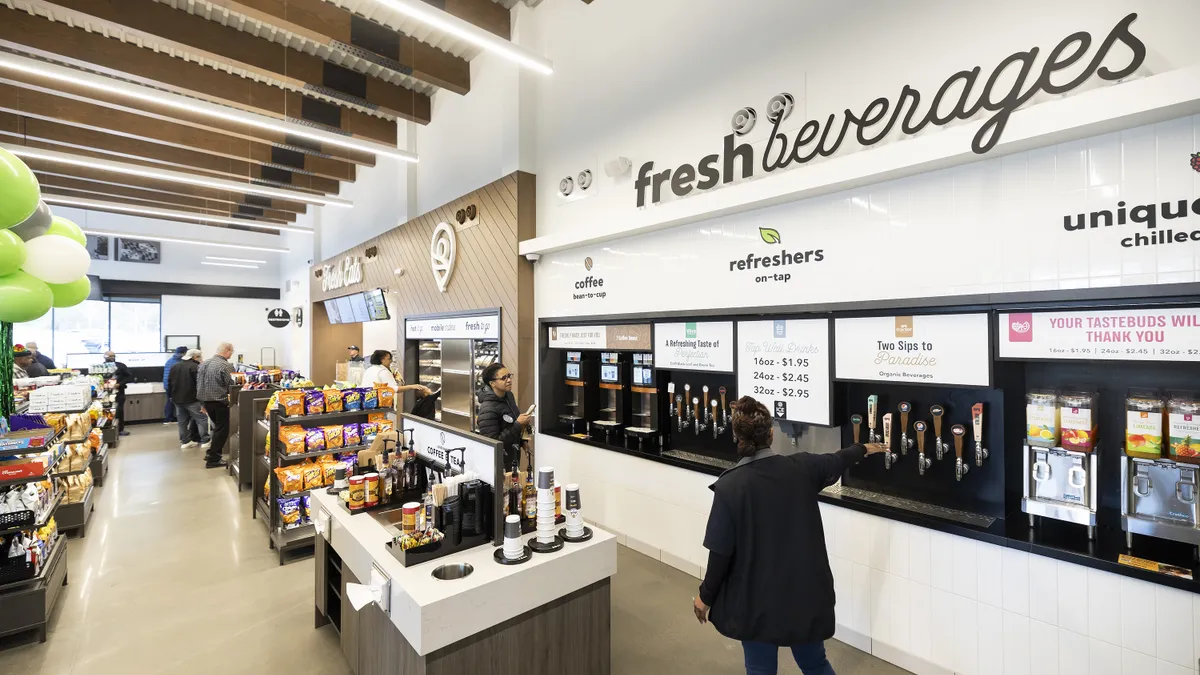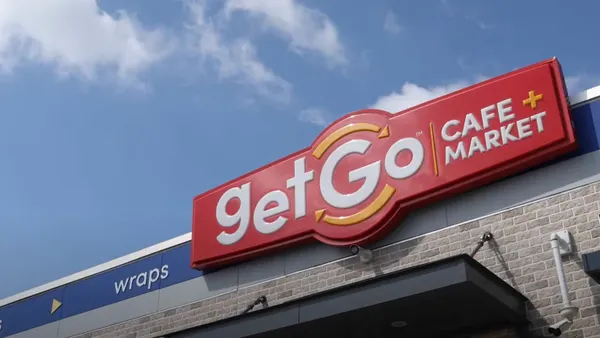Dive Brief:
- To deter loitering, QuikTrip is piloting special in-ground devices around the perimeter of a select number of stores in Tulsa, Oklahoma, said Aisha Jefferson, QuikTrip’s corporate communications manager.
- The 3D printed “anti-loitering domes” come in a variety of sizes and are installed on the ground along the outer wall of the building, according to a photo shared by the KRMG radio.
- QuikTrip is testing these devices “to provide our customers with the best experience while ensuring the safety of both our employees and communities in which we are honored to serve,” Jefferson said.
Dive Insight:
While many c-stores stick to posting “no loitering” signs, QuikTrip is applying a novel approach to stop loitering at these stores, similar to how some 7-Elevens have used loud music.
While loitering may not be illegal in and of itself, it can cause customers to avoid entering a store.
“In an effort to provide the highest quality products and service, QuikTrip is continuously looking for and deploying innovative solutions to create an in-store experience that maintains the safety and wellbeing of our customers and employees,” said Jefferson.
Improving the actual and perceived safety of a store can not only make the location more attractive to customers, but can also make it easier to retain employees. Safety concerns were the third-most-common reason convenience store employees gave for seeking new employment, according to a report from NACS and the Coca-Cola Retailing Research Council.
Crime concerns are well founded in the c-store space. Convenience stores were the location of the fifth-highest number of crimes in the U.S. in 2022, according to FBI data. Retailers have taken a variety of approaches to addressing the problem, from hiring security guards to installing AI-assisted security systems to even putting thieves on blast on social media.
Founded in 1958, Tulsa, Oklahoma-based QuikTrip operates around 1,000 convenience stores across 17 states and employs more than 28,000 people.













